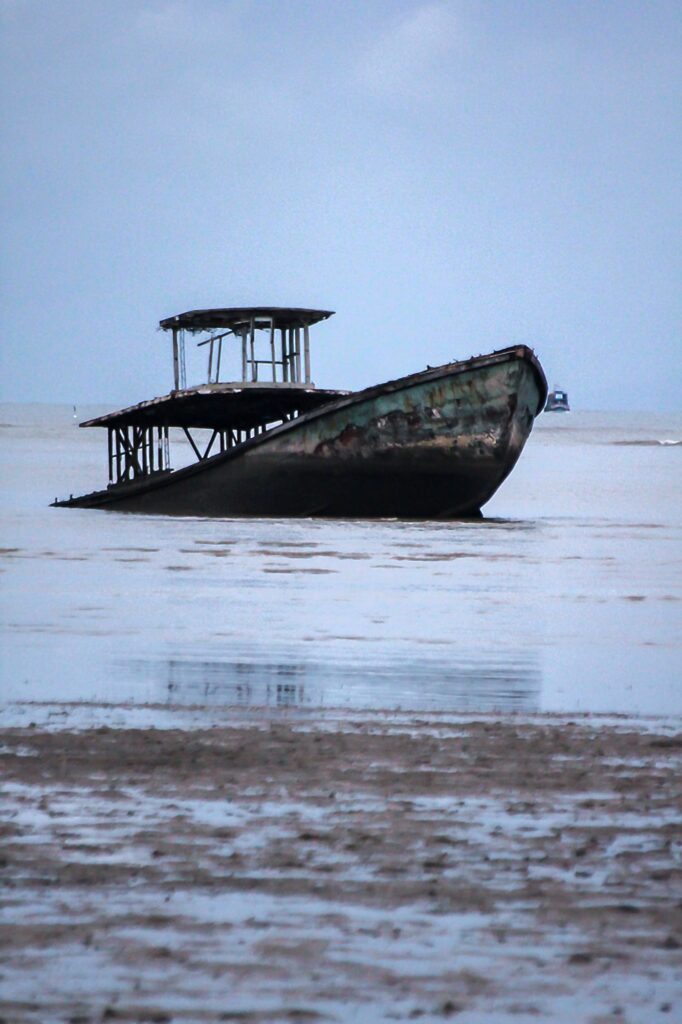Key Takeaways
- Allegations of the Tunisian coast guard ramming a migrant boat, causing 52 deaths, reveal systemic violence and neglect in Mediterranean migration policies.
- Survivor accounts depict deliberate actions leading to tragedy, amplifying concerns over the treatment of vulnerable groups, including children and pregnant women.
- European Union and Italian funding of the Tunisian coast guard links Western migration policies to potential human rights abuses.
- Migrants, fleeing war and extreme poverty, face abandonment, exploitation, and death, highlighting the urgency of revisiting migration frameworks.
- The Mediterranean remains a deadly corridor, where geopolitics and human desperation collide, underscoring the need for immediate humanitarian reforms.
Introduction:
The Mediterranean, often a symbol of beauty and escape, has become a deadly graveyard for thousands fleeing conflict, poverty, and persecution. A recent incident off the Tunisian coast underscores the dangers migrants face on their desperate journeys to Europe. Reports from survivors, amplified by Italian media and human rights groups, allege that the Tunisian coast guard intentionally rammed a boat carrying 80 migrants, causing it to capsize. Fifty-two lives were lost that night.
This chilling event is not an anomaly but part of a larger, systemic failure to address the plight of migrants with humanity and respect. The repercussions stretch beyond Tunisia, implicating the policies and practices of European nations that fund and support operations in the region.
A Night of Horror
On the fateful night of November 7-8, a boat carrying 80 migrants—men, women, children, and even 13 pregnant women—set out from the coastal city of Sfax, Tunisia. Their destination was Italy, a beacon of hope for those fleeing violence and poverty in countries like Sudan and Sierra Leone. Tragically, they never arrived.
According to survivor testimonies, the Tunisian coast guard intercepted their vessel just kilometers offshore. Instead of rescuing the passengers, survivors allege that the authorities rammed the boat until it capsized. Mohammed, a Sudanese man living in Sfax, shared the heart-wrenching story of his cousin Musa, a 16-year-old boy who drowned during the incident. Among the dead were a woman and her three-year-old child.
What makes this tragedy even more harrowing is what reportedly happened to the survivors. Some were abandoned in the desert, left to fend for themselves without food or water. Others were handed over to Libyan authorities, infamous for detaining migrants in conditions akin to slavery. Reports of human trafficking, torture, and abuse in Libyan detention centers are well-documented, making these alleged deportations a potential death sentence.
EU Involvement: Funding the Tragedy?
The Tunisian coast guard, like its Libyan counterpart, benefits from significant European funding and support. Italy, in particular, has provided Tunisia with patrol boats and training to stem the flow of migrants attempting to cross the Mediterranean. Officially, this support is framed as a humanitarian effort to save lives and combat human trafficking. However, the reality on the ground tells a different story.
If the allegations against the Tunisian coast guard are true, then European taxpayers are indirectly financing actions that lead to deaths, abuse, and human suffering. This raises serious questions about accountability and the ethical implications of outsourcing migration control to countries with poor human rights records.
The Human Cost of Migration Policies
The broader context of this tragedy is a global migration crisis that has pushed millions to the brink of desperation. Sub-Saharan Africa, in particular, remains a hotspot for conflict, climate change-induced displacement, and economic hardship. For many, the perilous journey across the Mediterranean is seen as their only chance for survival.
However, instead of finding refuge, migrants often encounter violence and neglect. Stories like Mohammed’s are far too common. Migrants are left to die at sea, stranded in deserts, or detained in appalling conditions. Women and children, the most vulnerable, suffer disproportionately. The lack of accountability and transparency in these operations exacerbates the crisis, leaving migrants with little hope for justice.
A Call for Change
This tragedy underscores the urgent need to rethink migration policies at both national and international levels. Governments must prioritize human dignity over border control and collaborate to create safe and legal pathways for asylum seekers. Instead of funding security operations that result in loss of life, investments should focus on addressing the root causes of migration: poverty, conflict, and inequality.
The Mediterranean should not be a watery grave for the world’s most vulnerable. It is a shared responsibility of the international community to ensure that those fleeing unimaginable hardships find safety and hope, not death and despair.
The incident off Tunisia’s coast is a sobering reminder that behind every statistic is a human story—a mother, a child, a teenager like Musa—whose lives could have been saved if compassion and justice guided our policies.










